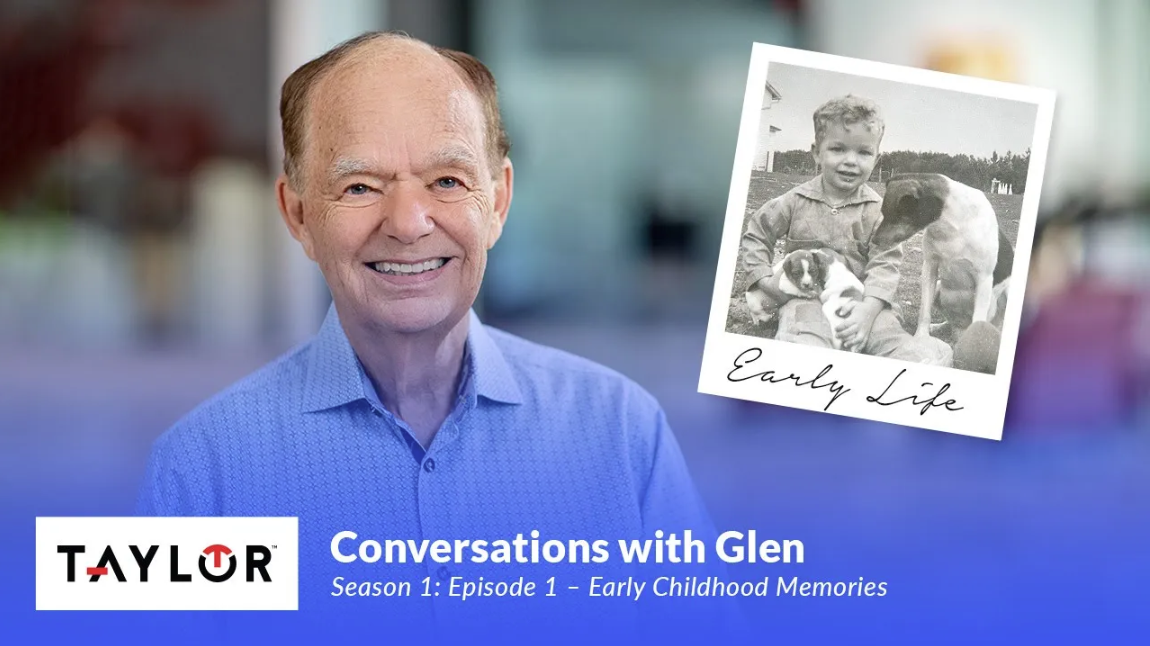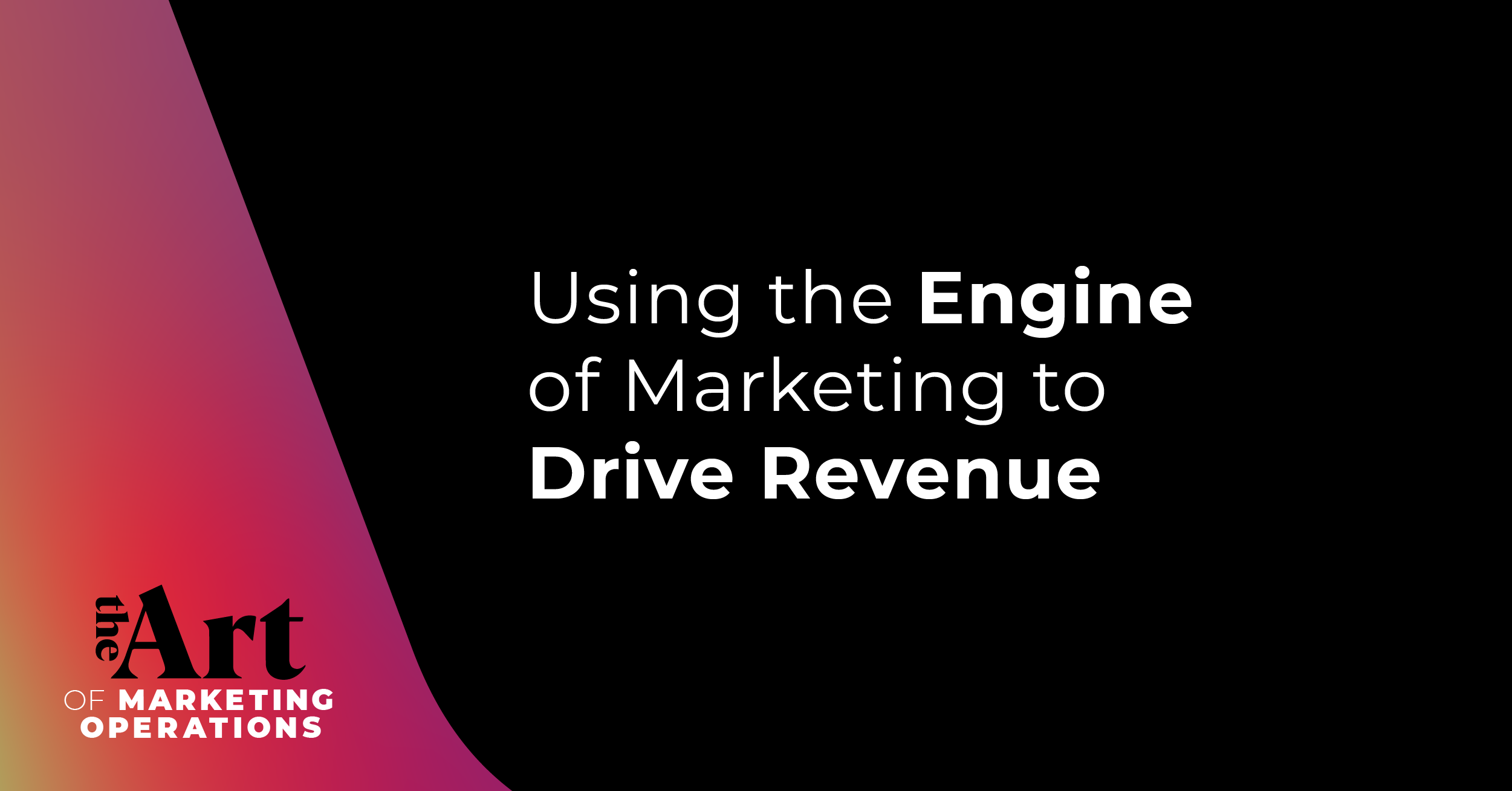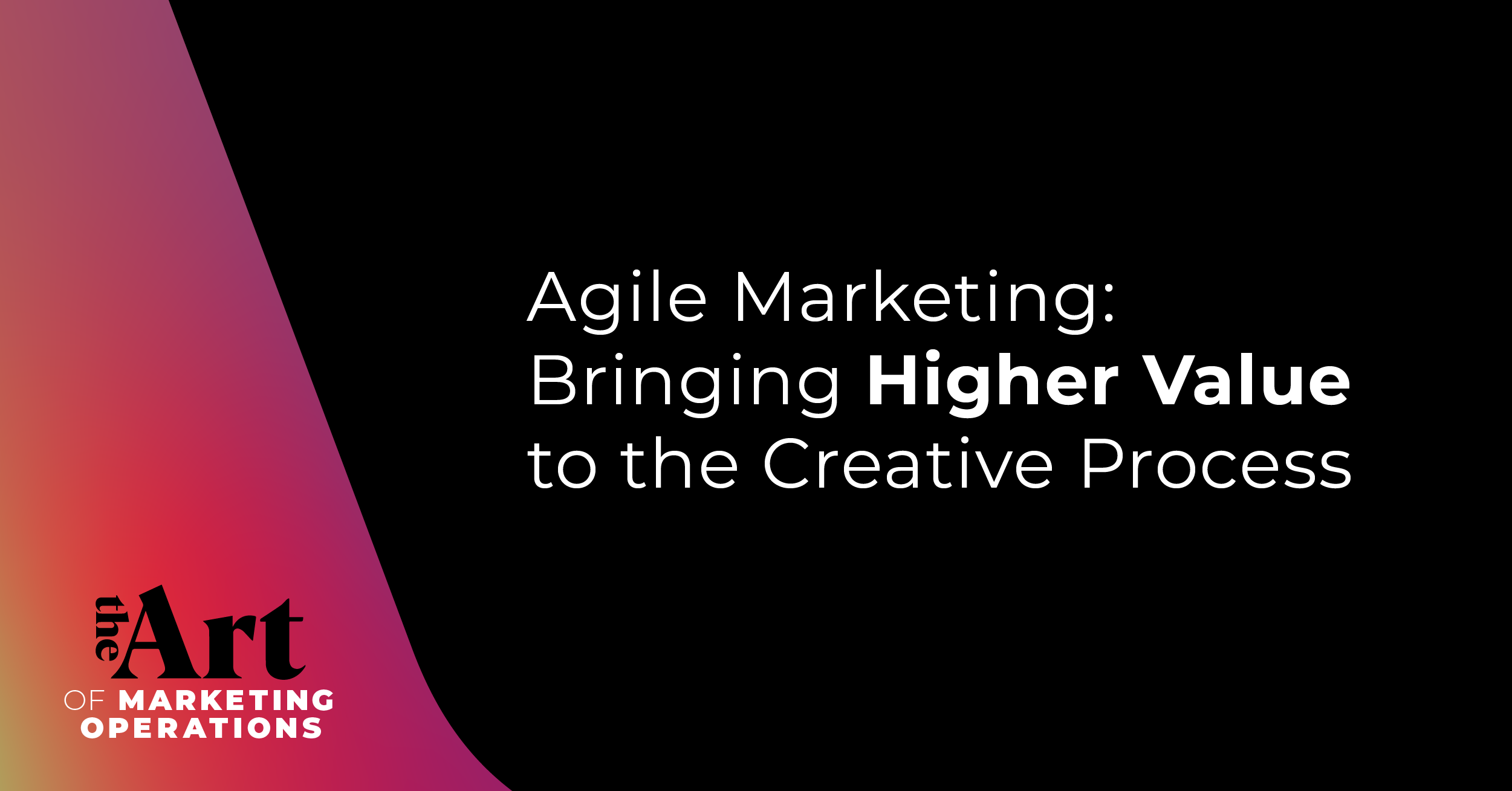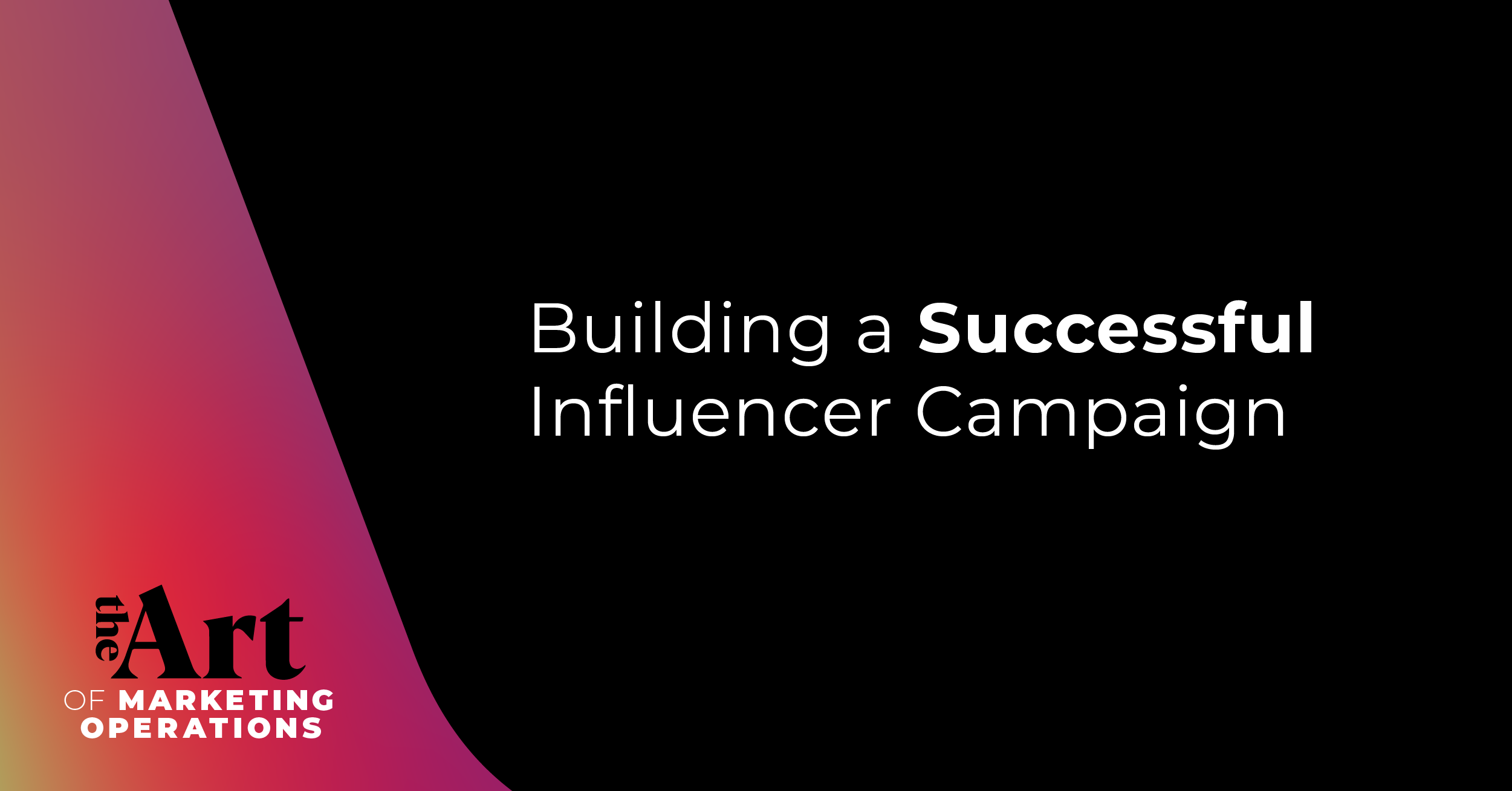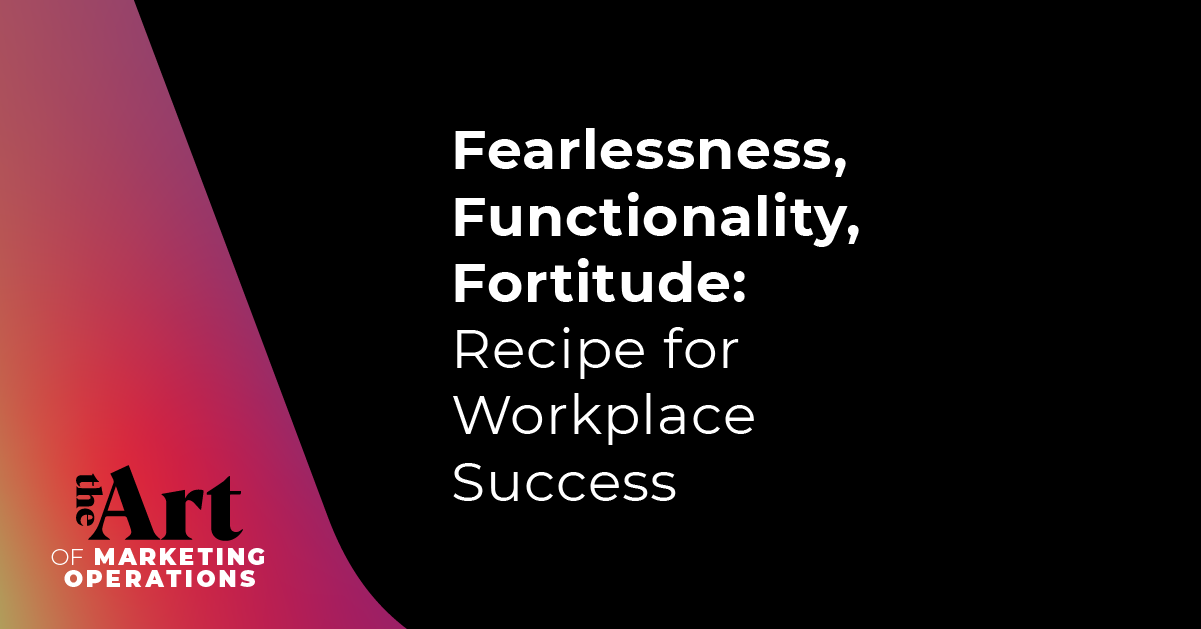What should always stay top of mind for marketing operations?
One is that businesses die without revenue, and two is that happy customers make all the difference.
Hear our conversation with Darrell Alfonso, Global Marketing Operations at AWS:
- Why marketing operations should care deeply about revenue
- The urgent need for transferable skills for MOps problem solving
- Translation, tech, and the customer’s hierarchy of needs
Ready to learn more about how marketing affects the much-needed paradigm shift in the US healthcare model? Let’s dive in.
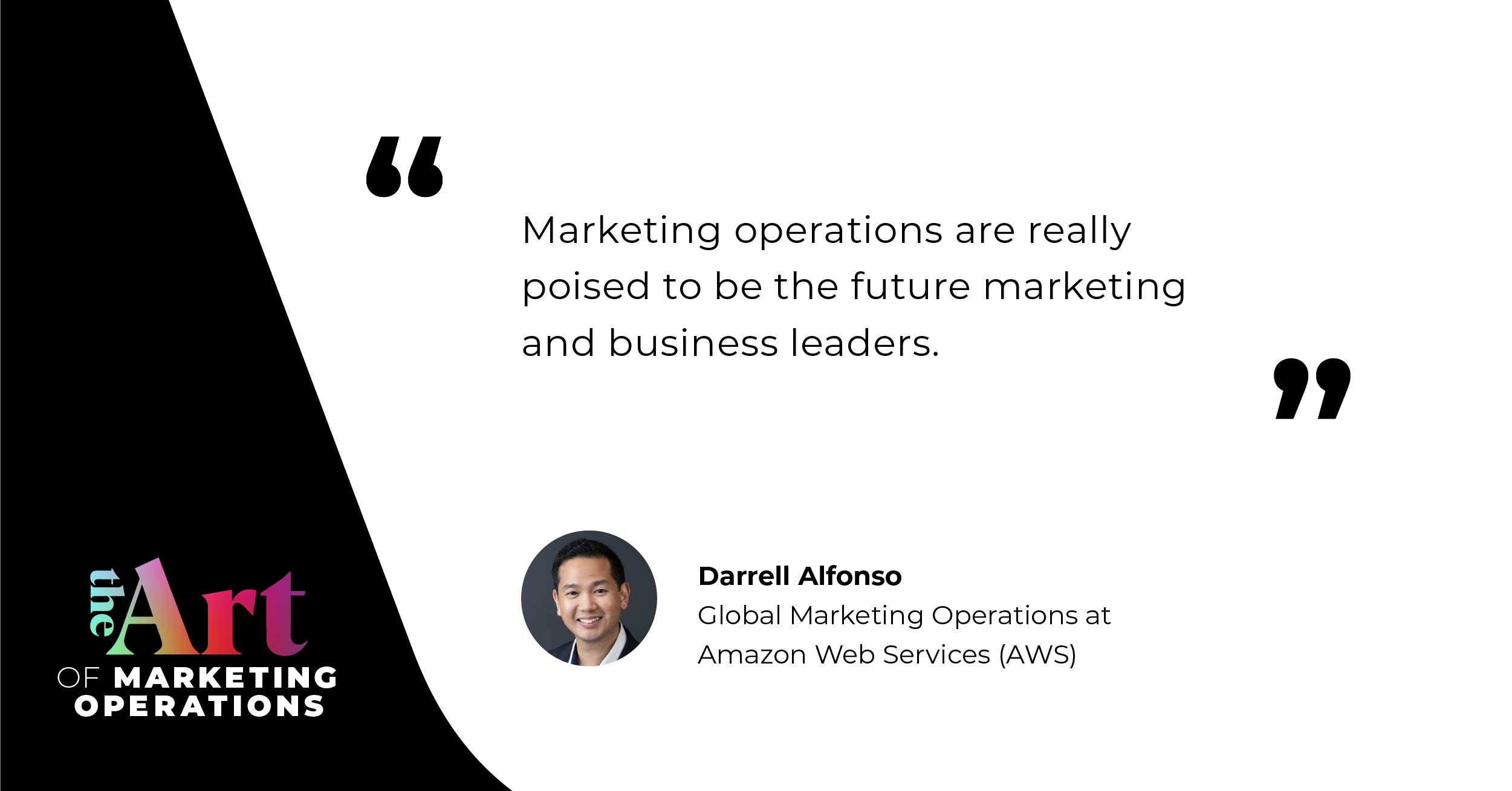
“Marketing operations are really poised to be the future marketing and business leaders.” — Darrell Alfonso
Why marketing operations should care about revenue
Darrell believes that marketing operations are in prime position to become future business leaders.
A lot of this has to do with:
- Big data dependency in business
- Alignment between go-to-market and the marketing operation itself
- Digital transformation
- Remote and hybrid working conditions
No matter the scale of business, its purpose and objectives should form the north star for your marketing operations. Among those targets will usually be a revenue goal.
Group your MOps functions accordingly
Here’s Darrell’s breakdown:
- Marketing product and engineering (processes and workflows)
- Enablement (training and support)
- BI and analytics (converging and interpreting data from all systems in play)
- Platform administration (setting the team up for success and maintaining that status quo)
Many marketers succumb to shiny object syndrome, triggered by the option to custom develop martech. There’s a time and place for this consideration, but never at the expense of a healthy revenue stream.
Darrell’s advice is to start with inexpensive low- and no-code tools. By doing so, you blend a handful of ‘pure’ tools together, creating a unique flow that aligns with your MOps needs.
Once you’re at that stage, with a humming process and dependable revenue, you can more safely explore custom development.
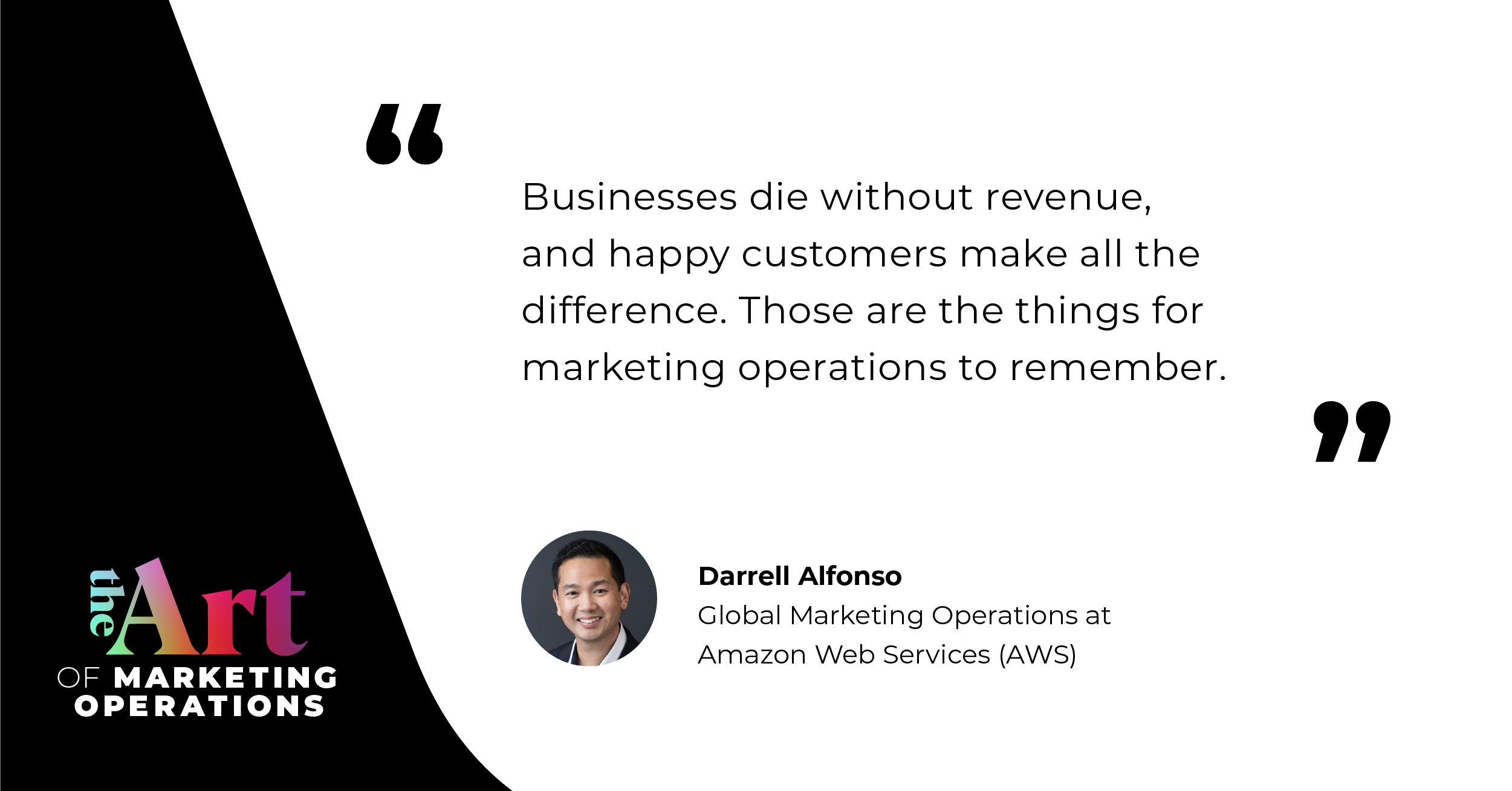
“Businesses die without revenue, and happy customers make all the difference. Those are the things for marketing operations to remember.” — Darrell Alfonso
The urgent need for transferable skills for MOps problem solving
It’s a commonly accepted notion that those most adaptable to change will survive, not necessarily the strongest.
Many marketing professionals are thrown off by sudden changes, especially after extended tenures at their respective companies. Your ability to drive and hunt for solutions will always matter more than the technical knowledge you hold at any one point in time (because there’ll always be more to learn tomorrow, anyway).
The power lies in pressing pause on tools which no longer serve the solution-seeking journey.
Darrell’s advice is to apply schools of thought instead of specific martech. It’s when you prioritize the wrong things that MOps really hits the fan.
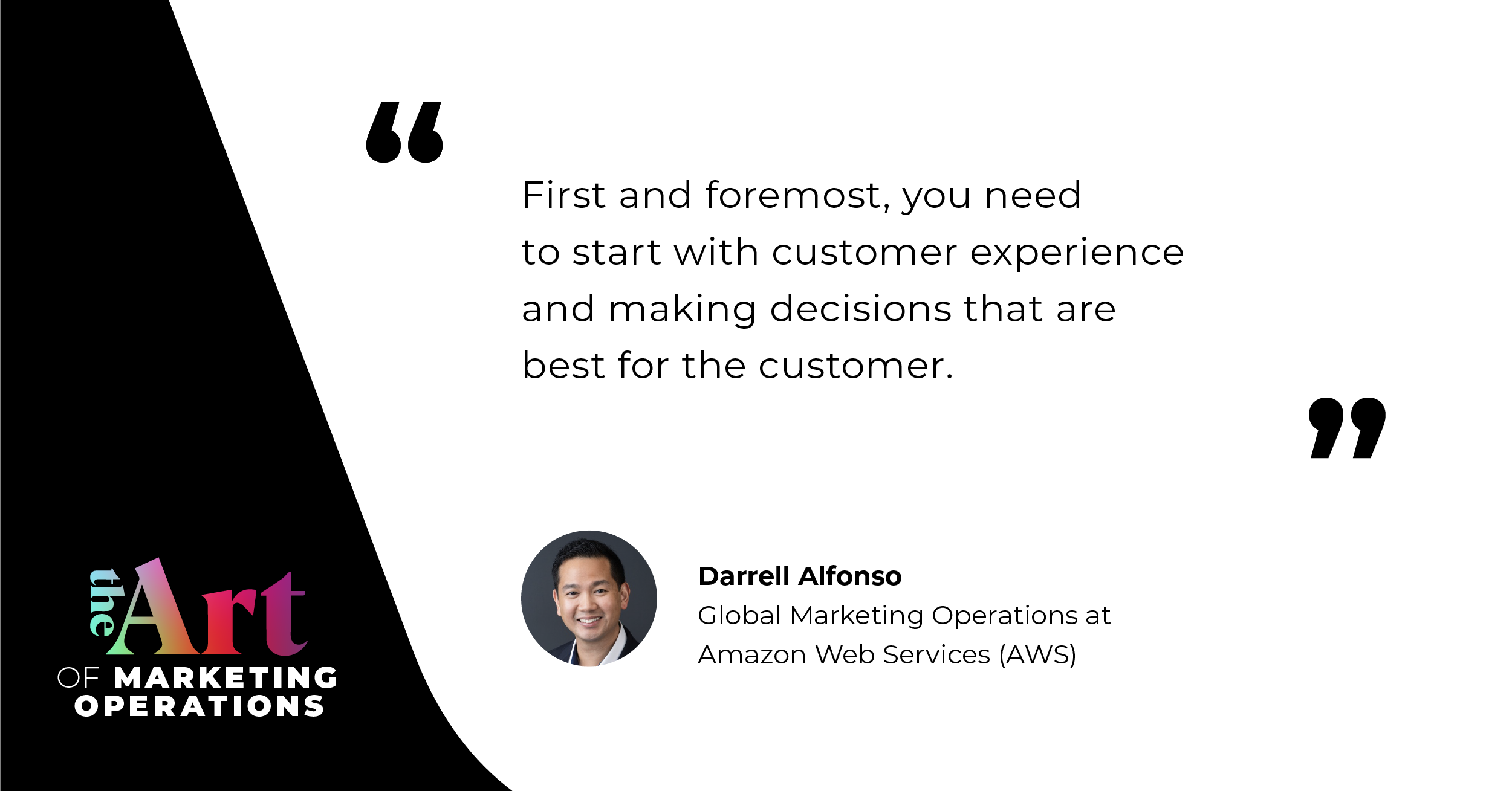
“First and foremost, you need to start with customer experience and making decisions that are best for the customer.” — Darrell Alfonso
Translation, tech, and the customer’s hierarchy of needs
Goals bring every part of a business together.
Darrell splits his MOps goals because he is working at a suitable scale to do so.
It’s a 50/50 split between revenue generation efforts and what he calls “fortifying one’s position.” It’s not only about doing the things that deliver business results but also about maintaining a sense of good housekeeping, optimizing people and process management, and the martech itself.
Translating marketing language into finance, admin, business ops, and other languages used in the company is a key skill. Learn to speak in the context of the important metrics for your business counterparts.
The benefit for the customer
If the customer experience is the altruistic benchmark for every business function and every employee, then every effort made to execute processes, enable people, or select or custom develop technology must align with optimizing that customer experience.
Managing customer experience through martech permissions
A simple feature like knowledge- or competency-based user permissions can revolutionize MOps, accommodating infosec and workflow needs simultaneously.
Implementing this also streamlines the company’s ability to maintain focus on both delivery and MOps optimization (always striving for an improved customer experience).
To really understand which levers you’d need to adjust, to optimize for the right improvement to the customer experience at the right time, Darrell shares his priority order of layers:
- Customer experience is always the first priority
- Business impact
- Contribution toward revenue
- Fortifying your systems
- Scalability over the long term
- Security and data management requirements
For those inevitable gaps and fork-splitting choices, intuition must be relied upon. The only way to build that is to develop and hone your skills, feed your curiosity and passion for your field of work over a long period of time.
More information about Darrell and today’s topics:
- LinkedIn Profile: https://www.linkedin.com/in/darrellalfonso/
- Company Website: https://aws.amazon.com/
- Darrell’s blog: https://www.darrellalfonso.com/



